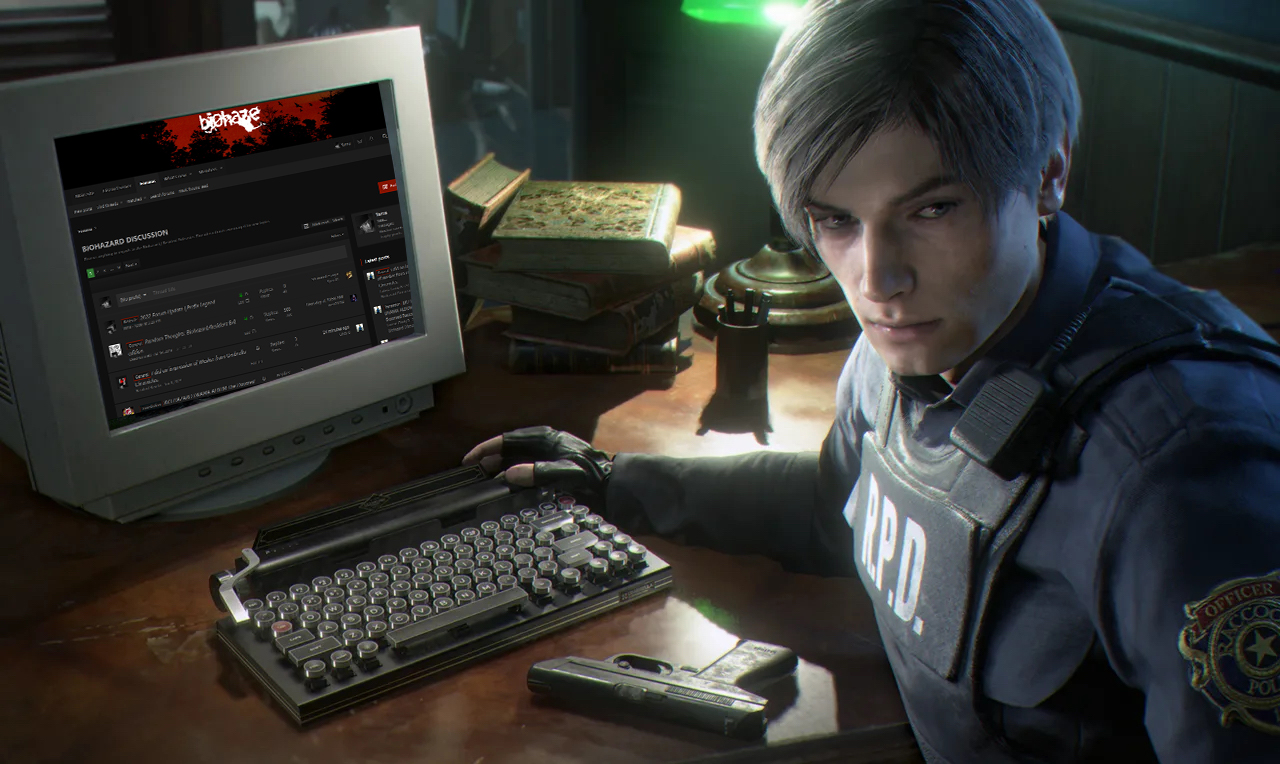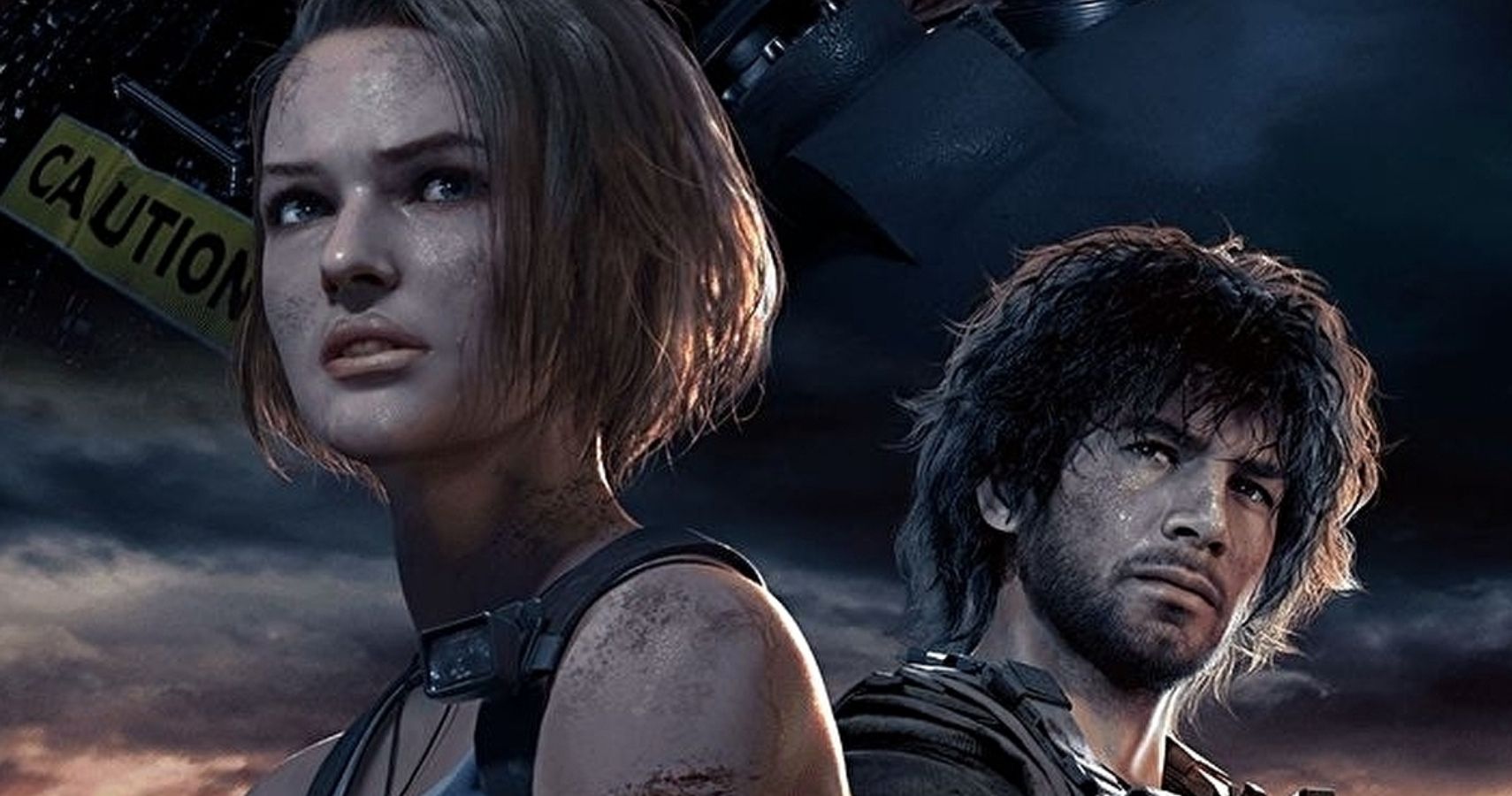I wanted to create this thread cause it deserves to be created.
Why do people care so much about " survival horror " to begin with? It was just a marketing term back for re1, it never had any objective meaning while not being a real genre at all. Like what does " survival " word even mean? Try to survive? Well you do that in all re games you play, both mainline and spinoff. Doesnt this make all re games " survival horror " ?
With re6; the devs have used " dramatic horror " statement for the 1st time and " dramatic " word is much more meaningful than " survival " word. What that statement means is they wanted to focus on story, drama, characters and emotions with the game more than previous entries. It's more easier to describe " dramatic " word than " survival " word which is quite vague.
I also dont get the " I'm a fan of survival horror. " statement. How can people be a fan of a term that is meaningless to begin with? " Action " and " horror " words arent meaningless so saying " I'm a fan of action. " or " I'm a fan of horror. " is fine but saying " I'm a fan of survival horror. " is quite awkward.
People also care so much about action and horror as well as stuff like exploration, inventory management, decision making etc.
Like all re games have action elements and all re games have horror elements. It was always a mix of these 2. No re game in the series is " %100 action " or " %100 horror " . You cant measure action and horror with percentages like that anyways, ı tried to do this in the past cause ı've been wondering about survival horror and ı regret it.
As for " exploration, inventory management, decision making " ; these are terms created by fans, not by devs. According to " fans " ; all re games must have insane focus on these. If it doesnt; apparently it's not a " real re game " cause it isnt " survival horror " .
Take re6 for example. This is the most bullied game in the series and ı've seen people criticising the game just cause it doesnt have " exploration, inventory management, decision making " even though it does. It's just that the game is extremely streamlined in these aspects which makes sense storywise if one thinks about it. However people dont seem to care and make awkward statements about the game instead.
Stuff like:
1. It's a good game but not good re game.
2. It's so bad it's good.
3. You can enjoy it but it sucks.
4. You can only enjoy it in specific way.
5. You can only enjoy 1 or 2 campaigns while disliking others.
6. It's not re and you're not a fan if you like or enjoy it and say it's good.
I've seen these statements for re6.
I've also seen people who care so much about " survival horror " trying to downplay story and characters at the same time. This is done the most for re6's drama as well as story and characters. With statements like " Who cares about story in re games? " or " Who cares about characters in re games? " . These statements are said just to exaggerate that meaningless term. Apparently devs do since they've been hiring writers to work on the games' story scripts. The only times the devs didnt seem to care about story are remake and re4. In terms of the laziest one; ı have to go with remake cause it's a recreation of re1 but no writer is hired. With re4, the devs hired a writer ( haruo murata who previously wrote outbreak games. ) who wrote separate ways portion. Remake still didnt get the same treatment to this day. Odd since remake is presented as one of the best by fans. I said this cause of the " Re4 ruined the franchise! " statement even though remake didnt have a writer hired either. That statement doesnt make sense.
I just feel like the devs made a big mistake by using that term to market re1, that caused players to make wrong statements about the franchise since the start.
Objectively; re games are about biohazards, NOT survival horror. Cause the franchise's actual name is " biohazard " and in japan, that's how the entries are called. Makes sense really since capcom is a japanese company and og japanese script is more canon than official localization which is filled with mistakes.
Why do people care so much about " survival horror " to begin with? It was just a marketing term back for re1, it never had any objective meaning while not being a real genre at all. Like what does " survival " word even mean? Try to survive? Well you do that in all re games you play, both mainline and spinoff. Doesnt this make all re games " survival horror " ?
With re6; the devs have used " dramatic horror " statement for the 1st time and " dramatic " word is much more meaningful than " survival " word. What that statement means is they wanted to focus on story, drama, characters and emotions with the game more than previous entries. It's more easier to describe " dramatic " word than " survival " word which is quite vague.
I also dont get the " I'm a fan of survival horror. " statement. How can people be a fan of a term that is meaningless to begin with? " Action " and " horror " words arent meaningless so saying " I'm a fan of action. " or " I'm a fan of horror. " is fine but saying " I'm a fan of survival horror. " is quite awkward.
People also care so much about action and horror as well as stuff like exploration, inventory management, decision making etc.
Like all re games have action elements and all re games have horror elements. It was always a mix of these 2. No re game in the series is " %100 action " or " %100 horror " . You cant measure action and horror with percentages like that anyways, ı tried to do this in the past cause ı've been wondering about survival horror and ı regret it.
As for " exploration, inventory management, decision making " ; these are terms created by fans, not by devs. According to " fans " ; all re games must have insane focus on these. If it doesnt; apparently it's not a " real re game " cause it isnt " survival horror " .
Take re6 for example. This is the most bullied game in the series and ı've seen people criticising the game just cause it doesnt have " exploration, inventory management, decision making " even though it does. It's just that the game is extremely streamlined in these aspects which makes sense storywise if one thinks about it. However people dont seem to care and make awkward statements about the game instead.
Stuff like:
1. It's a good game but not good re game.
2. It's so bad it's good.
3. You can enjoy it but it sucks.
4. You can only enjoy it in specific way.
5. You can only enjoy 1 or 2 campaigns while disliking others.
6. It's not re and you're not a fan if you like or enjoy it and say it's good.
I've seen these statements for re6.
I've also seen people who care so much about " survival horror " trying to downplay story and characters at the same time. This is done the most for re6's drama as well as story and characters. With statements like " Who cares about story in re games? " or " Who cares about characters in re games? " . These statements are said just to exaggerate that meaningless term. Apparently devs do since they've been hiring writers to work on the games' story scripts. The only times the devs didnt seem to care about story are remake and re4. In terms of the laziest one; ı have to go with remake cause it's a recreation of re1 but no writer is hired. With re4, the devs hired a writer ( haruo murata who previously wrote outbreak games. ) who wrote separate ways portion. Remake still didnt get the same treatment to this day. Odd since remake is presented as one of the best by fans. I said this cause of the " Re4 ruined the franchise! " statement even though remake didnt have a writer hired either. That statement doesnt make sense.
I just feel like the devs made a big mistake by using that term to market re1, that caused players to make wrong statements about the franchise since the start.
Objectively; re games are about biohazards, NOT survival horror. Cause the franchise's actual name is " biohazard " and in japan, that's how the entries are called. Makes sense really since capcom is a japanese company and og japanese script is more canon than official localization which is filled with mistakes.
Last edited by a moderator:



